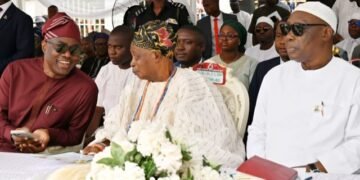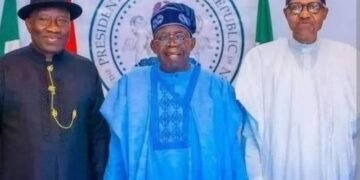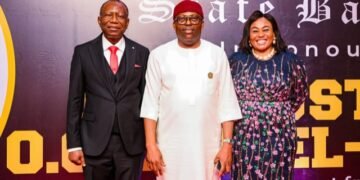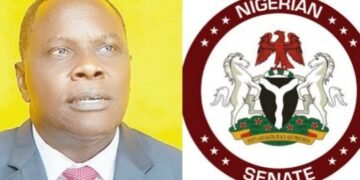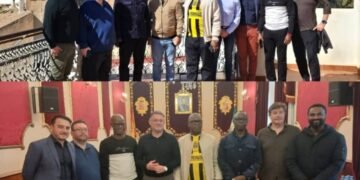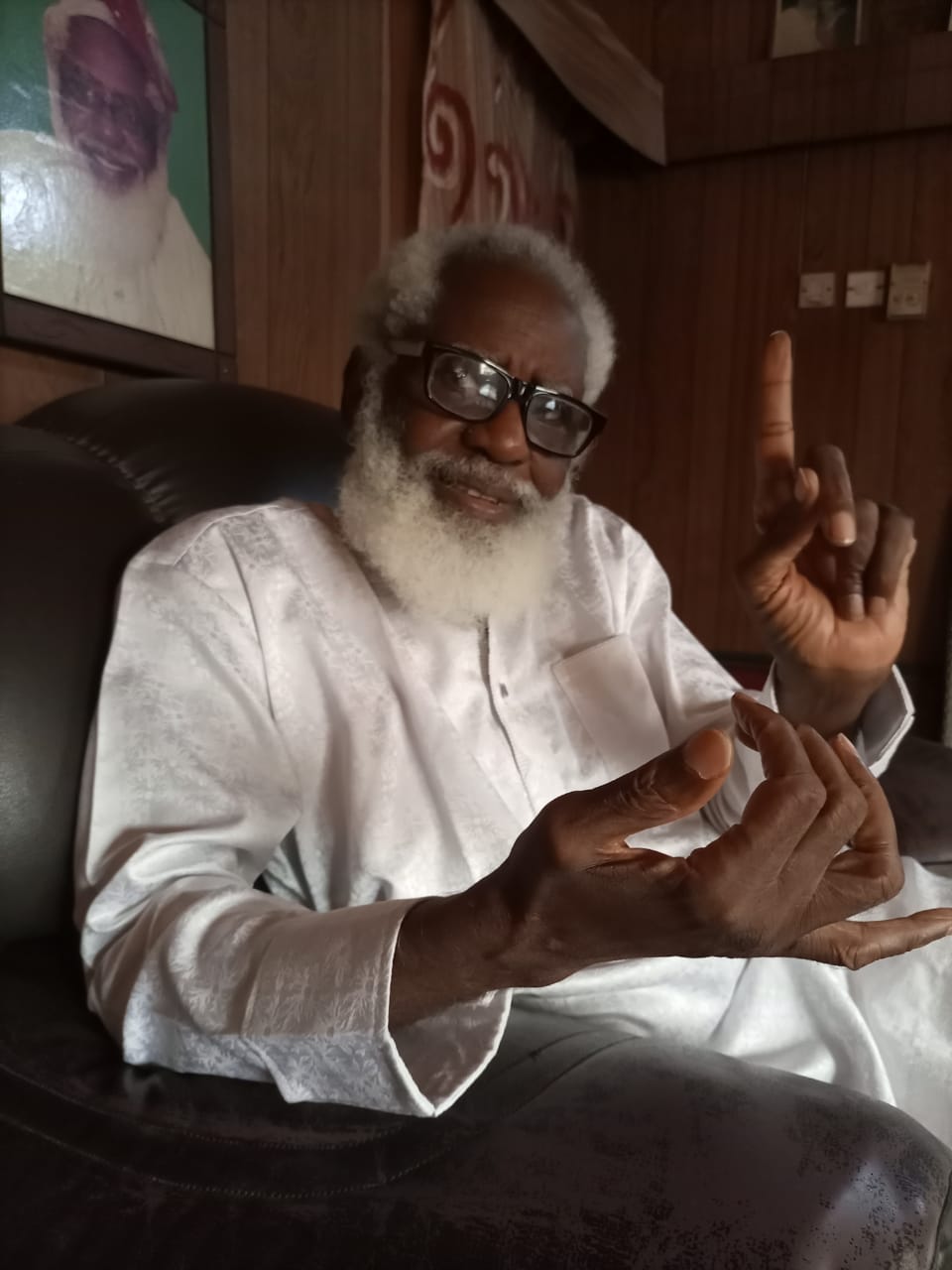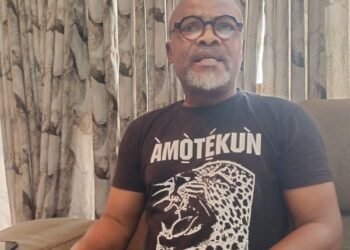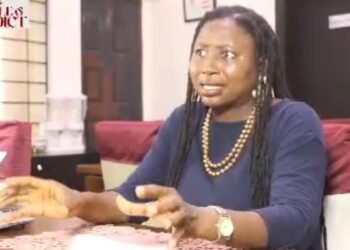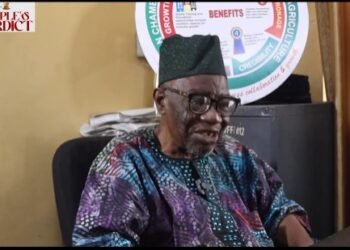Dr Akinyemi Farounbi, former Nigerian Ambassador to the Philippines, a seasoned administration and veteran broadcaster, in this exclusive interview with Newscoven.ng, speaks on the State of the Nation, the passage of the Alaafin of and gradual erosion of tradition, norms and cultural values.
You have been expressing hope over the years that thing would get better in this country, but it seems we are heading nowhere. From where did you derive such high level of optimism?
Let’s look at it from two or three dimensions. The first is that Nigeria is too big: today, we say we are 205 million people. With the diversities that we all have, it is too big for it not to make progress, no matter how much we resist it. This is because the totality of Nigeria is bigger than if you add all the parts together. And that is what our leaderships will always forget that no matter how powerful you may be, you are one individual.
We are talking of a collectivity of 205 million people and they are not discreet entities; they are entities that interact. So, you are going to have 205 million times 205 million times 205 million interactions among the people; I interact with you, you interact with me and we interact with somebody else. One Nigerian is not just interacting alone.
So when you put together all those interactions, if it were in Science, the friction of the interaction, the rubbing together will generate heat that will become energy that will move the nation forward.
They always seem to think that we are all dumb, but no. People will keep quite, but if you listen carefully, you will get the loud grumblings. If watch carefully, you will see that what you think is disenchantment or despair is a rebellious stance. When you combine all of these, Law of Nature will generate a forward movement.
If we don’t have a forward movement, the next thing is that there would be a shattering; it would be an explosion that will shatter. I believe that those who are resisting the forward movement will know that the alternative, which is a shatter, will not be in their own interest. That is the first dimension.
The second is that I look at the spirituality in Nigeria. Yes, there may be a lot of fake religions, fake practices; it is true that, in spite of the growth in the number of churches, number of mosques, number of crusades, revivals, night vigils, bad behaviour is on the increase. But the truth is that Nigerians are genuinely God-seeking people. They may want wealth, money and position, but they genuinely believe in God.
So, if you look at it at that level, there will therefore be one person out of these 205 million people that the God that they seek will have sympathy for. And because of that one person, the God that they seek after will alter the course of the nation so that that one person might be vindicated. So, I have a spiritual angle to it and I know that it is inevitable.
Of course, if you look at history, you will expect a total decay. That is contrary to the earlier two hypotheses because every human organisation or human being, under nature, will germinate, will grow, will reach maturity, will be in a plato and will begin to descend and decay. That is an obvious possibility too. But I don’t think Nigeria has reached the peak for it to begin to decay; it hasn’t.
When natural organisations go that way, it will have a series of peaks. If you don’t re-energise it, the first peak might be the end and it will go into decadence. But if you re-energise it, it will grow again to a higher peak before we have the decadence. It is the reason the big human empires ended: Oyo Empire, Mali Empire; Songhai Empire and others reached a level that they became so sure of themselves and so arrogant of the success of their achievements. At that point, they began to descend and another power will rise somewhere. That is also a possibility.
The average Nigerian has been impoverished by successive leaders and we have reached a point where it is now every man unto himself. Did you think we still have that cohesiveness to bring about the change you envisaged?
Let me say this: This change that will come will not be because the mass of the people will just wake up one morning and say they want a change. It will be because there will be oasis of discontent, oasis of intellectual stimulation, oasis of intellectual activity, unrelated and they may not even be aware of themselves, but I know that, as we speak, they are there. There are oases of discontent. There are people who appear to have given up and they have given up because they have no hope, yet they see these oases.
In Sociology, you say that the society get led by five per cent, the last five per cent are called laggards. In-between are people that will follow the five per cent. Now, this five per cent is what, in the Dialects, we would call the anti-thesis to the existing movement. There is going to be a coalition of the anti-thesis. They are scattered all over; they are fractionalised; they are disconnected, but as you continue to pauperise the people, you begin to magnify into importance these oases. And, when they begin to network, they bring leadership.
I always explain it like when we were in the university, the students, when they want to begin their crises, yes, they may call a students’ assembly, but before that they have four or five people, they network. Then others will begin to jam doors and make noise. I mean a lot of people will join the aluta movement without knowing the reason for it. And that is what happens in every society.
Given the type of society we have in which we have elevated materialism far and above the three oases that you talked about, did you still see these intellectualism coming together?
Yes they will. It is an inevitable thing that will happen. They will gravitate because those who appeared to have elevated materialism did it, not because that they loved to do it. It is the circumstances that propelled them into that situation. The average human being needs comfort and that is all. He does not want to ride 10 cars or build 10 houses. He wants to be able to do four things primarily: he wants to be able to feed himself; he doesn’t want to be hungry. Second, he wants to have a place to sleep; he doesn’t want to be homeless. Three, he knows that he cannot do those two without having a job or work to do. So, he wants to have work, a job or a business. Lastly, he needs peace.
The needs of man are sub-minimal. There are people, however, who want to compete with Bill Gates to be the richest man in the world in Africa. But that is not the wish of an average human being. An average human being wants to be guaranteed two or three meals; wants to be able to take care of his family; wants to be able to dress well without going round naked and wants to have a place to sleep. He is not even looking for a 12″ by 12″ bed because he knows that his body cannot take more than a two-and-half bed.
But because of the contradictions and the inanities in the society that had elevated wealth, it would appear like everybody wants to be wealthy. But no. In their heart of heart, that is not what they want. What they want is comfort and comfort does not derive from wealth; inner peace of mind does not come from wealth.
When they get the option of making a choice-do you pursue this vulgar monetisation of the society or you see the narrow opening that can give you comfort and inner peace of mind- they will surely choose peace of mind. That is why I am very clear in my mind that, at a point in time, which unfortunately I wish I can determine, Nigerians are going to reach a point of limited tolerance. They are going to get to the limits of their tolerance. And when you push a man to the limits of his tolerance, then remember the Yoruba proverb- push a goat to the wall, it has no teeth but it will turn and bite.
So, we should not take Nigerians for granted on the basis of what we are seeing. Now they are being drifted like a leaf upon water. That is not what they want and they will go along until they will reach a level at which they will say “no more, thank you”.
After more than 60 years of independence, did you think we really have a people that we can call Nigerians and who can attain the level of nationalism that you talked so glowingly about?
We don’t have a people; we have peoples and that is, in fact, what complicates the situation. Because you have peoples, at various levels of development, with various needs, with various views, they are not all likely to sleep and point their heads one way. That is the danger. If they are all united in stupidity, then they will be a people. Or, like Charly Boy will say, if we are all mumufied, if we are all mumus, then you can expect an endless pauperisation of the society. But we are not.
The diversity creates diversity in viewpoints, diversity in thoughts, diversity in expectations, diversity in mobilisation, diversity in motivation and that is what would allow a little match to blow a big house. This is because, once it starts, there will now be a networking and then you find that ‘oh, you mean this man that I have always been seeing has this rebellion in his heart?’ We are looking at the face, but we should all go round the societies; history.
Let’s take the Yoruba; we had an emperor in the Alaafin. He was so dictatorial far back in history. But when Ibadan rose, it limited his power. Ibadan wanted to take over the dictatorial tendencies of the emperor. In spite of that, Ekitis revolted and successfully gave us the longest war history in the world, which ended up with no victory, no vanquished.
So, if you think that you have a monopoly today, then you must go to where they have the Casino and see what happens. It has to rotate and when it rotates, what is advantageous to you today may become disadvantageous and people that you think have no advantage can become advantageous.
Some of my friends would see me and say I am talking like a common man but I do tell them no, I am only talking to the man in the street. It is not that they don’t see; it is not that they are happy. And that is why I say, if you are a leader, you must have a way of listening to what has become, in my view, the loud grumbling of the masses. It is, to me, like the rumblings of the thunder. It will look so far away but, very shortly, it will begin to get nearer you and before you know it, the storm would come. But you can avoid the storm. Once you hear the rumblings, then you take to your feet to go and find yourself a cover.
That is the way I see it and that is why, if we are a smaller country of about five million people, we can just look at it and ask, what has been the volume of interaction? What has been the traffic of exchange of ideas? What has been the traffic of innovation and creativity?
But here we are talking of 205 million people. Out of these 205 million people, there are people that, before the Whiteman came, had their own iron and steel; they were making the cutlasses; they were making hoes and they were making their guns…
Did you think we have what can make us to go back to that level of development?
Yes because it is innate; it is in our DNA. To have been able to do it then, it is because the capacity to innovate is in our system. When we became what we became, we killed human intuition, human innovation and human creativity and we assumed that it has been killed. But it doesn’t get killed. We keep quiet in the face of what may appear as total oppression. But there was a French writer who once said “the man in chains can be free when he reaches a level and he says no more.” At that moment, he becomes uncontrollable.
Looking back into history, development is synonymous with a culture, tradition and values. You earlier made mention of an era when people were their cutlasses, hoes and even instruments of war, like we had during the Nigerian Civil War…
Who expected that the terrorised, intimidated and oppressed Biafrans would be able to make their Ogbunikes that became as deadly as any other western weapons? You can easily overlook and imagine that you have conquered the body, but have you conquered the mind? Have you conquered the brain? Have you killed the resourcefulness? You will need a lot of brainwashing to be able to do that.
What we are experiencing now, especially in Yorubaland, is gradual but steady erosion of culture and values. We have some shades of characters as traditional rulers in Yorubaland but who are nowhere near tradition. What are the implications of these on the society and the people?
Where did we go wrong? Sociology teaches that where two cultures meet, the ‘superior’ absorb the ‘inferior’. Our culture met with the western culture when it came here, initially as Portuguese and later on as British. We were fascinated by a few things that they were giving us. We were fascinated by their booming guns. Sometimes, we were fascinated by their ordinary things like mirror, whisky and rhum.
First, they brought education. We didn’t have a writing culture. Samuel Ajayi Crowther, one of us, went there as a slave, came back and reduced our language into a written one. He identified the vowels and the consonants and so we started writing Yoruba and Igbo. He did the translation of Yoruba Language; he wrote his own version of Yoruba History.
We saw this education that translated the child of your neighbour, somebody riding a car and thought that meant that person is superior. So, wholesale, we started adopting their language, their education, their religion, their food, housing and all of that because we thought they were superior.
Of course, they came too; they saw our monarchy. They are also monarchical but they found that they have a central monarchy. They tried to help us build one; they tried to make the Alaafin the central monarchy to Yorubaland. If you go to the late 18th Century and early 19th Century history, he was referred to as the King of Yorubaland. But, of course, the Ekitis, the Ados, the Akures, the Ijebus, even the Ibadans, were never under him. That was the western understanding: that you can have a king, have dukes and all of that, but how can you be having numerous kings?
Then, of course, they brought democracy. Since they found that we don’t have a central king that they can use, like the Sultan and create an indirect rule system, they brought their own democracy and nurtured a new set of leadership who were political leaders who also allied with the westerners to desecrate the monarchs, to reduce them into errand boys for the political class. And in doing so, the traditional significance, the splendour and the awe that surrounded the monarchy was removed.
In times gone by, when they say you will be the next oba, you will run because you know the enormity of the responsibility. Then, there were times they had to ask Ifa and use juju to bring you back by force. But now, people compete for the throne because it is no longer a bastion of traditional value and traditional significance that it used to be.
On the selection, now they vote. It is no longer Ifa that speaks. And in voting, what happens on election day when you do vote-buying also happens among the kingmakers on the selection of a new oba. So, everything lost its values. Once, it becomes purchasable, then you must remember the Yoruba saying that ohun to ba niye, abuku ti kan.
What you said has negatively impacted on the Yoruba race to the extent that we have some charlatans mounting the throne and doing all sorts of things which historically are taboos. We now have obas dancing and eating in the public…
You know what they used to say? “Akii ri enu ojimomo nita” (cannot see the king’s mouth shaking because he is eating). But, of course, things have changed. Time there was, even in this country, when somebody must taste whatever the king is eating and you have to see that that there is no poison in it. That was even transferred up to the Second Republic-I don’t know what they do now- no governor would eat anything until somebody has tasted the food.
But nothing is important to us any longer. We have trivialised positions because we have gotten there cheaply, even when we have purchased it.
Even the role of the government in the appointment of an oba has become an eyesore, impacting negatively on the people and the community…
In all of these, both sides are vicariously liable; the government that goes beyond the traditional requirement is guilty. The people who allowed such individual to mount the throne and govern them are also guilty. This is because they have surrendered their own rights to traditional good governance and they have mortgaged it, for whatever reasons.
If you put somebody who has not won election and make him the governor or the president, you expect an outcry or revolt by the people. So, why would the people, knowing that this man, as a child from the female part of the ruling house, is not entitled to sit on the throne and you go to the palace and say kabiyesi to him? In times past, when there was sanity, the people will avoid such palace; he would be there ruling over nobody. Of course, there have been instances they chased Kong’s away from the palace.
Did you see such happening in this clime?
When you get to the limits of tolerance, it can happen. Nobody would expect that Mrs Funmilayo Ransome-Kuti and a few women can chase a powerful Alake out of the palace, but they did. We saw what the late Mrs Margaret Ekpo did as regards the Aba Women Riot. So, it can happen, it is just because we lack sense of history.
You are a leader because people accept you as a leader. You are a governor because people accept you as governing them. You are a president because accept that you are presiding over them. You are an oba because people accept you as kabi-o-osi. The day they refused to accept you, you are out of the palace.
Given the pervading decadence in Yorubaland, how would describe the person of the late Alaafin of Oyo, Oba Lamidi Olayiwola Adeyemi III, in terms of upholding the culture and traditional values?
One thing you will first give the late Alaafin is that he loved Yorubaland; he loved the culture, even in a very fashionable way of dressing, he made your head to think cultural. He loved the language; he was a master in it. He was a master in the area of the written history of the Yoruba. Imagine when somebody said as regards the History of the Yoruba from the 12th Century, he was a master of it. If it has been written anywhere, he knew about it. If it is in the archives, he knew about it. So, generally, you could say he was a right symbol of the Yoruba.
And of course, he came in a different era. Politics is there and I guess he had a disagreement with almost all the governors. He reigned while he was there, for whatever reasons. I think that does not take away from the fact that if it comes to the question of culture, he could dance in Yoruba, he could sing it, he could interprete the drums and I think he worshipped, in spite of the Islamic belief, he didn’t abandon all the deities that were peculiar to Oyo.
I know that there have been days he could not come out because the deity said of that day that he cannot see people. There was something about him that was similar to the Binis in the way he has taken the throne. Of course, the way the Binis have taken their throne is not the same way the Yoruba have taken their throne, but I recalled now that President Goodluck Jonathan was in Benin and the Oba of Benin did not see him because he was not allowed by the deities to see anybody that day. It is the kind of thing that the late Alaafin will do because he was in consultation with the deities.
The late Alaafin did not consider the Yoruba tradition and culture inferior to whatever religion. So, he is the reason a lot of people who love the Yoruba culture, who are attracted by the tradition feel sad about his death.
It was in the news that a three-day traditional mourning was declared in Brazil in honour of the late Alaafin. But nothing of such happened here…
It is because the prophet has no honour in his home. Like I said, the attitude of the Yoruba to kingship is different from the attitude of the Binis, for example. Even to their culture, the Binis are different in the way they extol, the way they carry, the way they elevate and promote their culture, we don’t do it here.
These people in Brazil felt a longing for their root, without knowing that those living at the root do not understand the enormous significance of the institution. If you say why not declare a holiday, somebody would say ‘but the Olubadan died and you didn’t declare a holiday. The Soun died, you didn’t declare a holiday’. We have trivialised things.
Some people are already saying the death of Oba Adeyemi is the end of an era. Can you foresee any vacuum in Yoruba tradition and culture with the passage of the late Alaafin of Oyo?
It is too early to say his passage is the end of an era. We can only say it is the end of an era in another 10 years because you don’t know what can happen tomorrow. You don’t whether Oyo will stumble or deliberately produce and install another Alaafin that would be as iconic and as traditional like the late Alaafin. You never can say.
And when you talk of an era ending, it is an individual era. There was a Caucus of Obas that the late Alaafin worked together with. There is an oba that calls him Iku; they were very very close. When it comes to taking difficult positions in the interest of the Yoruba, they were found to have done that together. Would the end of one mean that the other can no longer continue? So, we should not hastily conclude yet. We should wait to see what and who will emerge as successor.
Of course, Oba Lamidi Adeyemi did not only bring tradition, he also brought his own human character to that office. So, an office can be made big by an individual, bigger than it has ever been; and an office can be whittle down, no matter how big it used to be, by an individual. So, let’s wait; let us pray and hope that the Oyo Mesi would be guided in their choice or would allow pure tradition to govern their choice.
Unfortunately, some people don’t believe that the Oyo Mesi are going to do that because they have not seen that in their handling of the rites of passage of the Alaafin. There are people who are absolutely unhappy that his body was being displayed. They are not quarreling with the fact that people saw the body or that different faiths said prayer. But carrying his body on shoulders, being pursued by the crowd as if it was an ordinary person did not sit well with some people.
I recalled that in an interview that I read, Alaafin Adeyemi believed that the Oyo Mesi knew what to do with his body. In a discussion I had with him and with my good friend, Chief Tola Adeniyi, he showed his disenchantment with a law that has now been passed in Ogun State in respect of the traditional institution. In the process of the law been passed, the late Alaafin asked, why would people who had risen through a traditional route want that route abandoned and changed, in deference to themselves and not to the tradition? He told us that he was sure that the Oyo Mesi know what to do. But I didn’t see signs of anybody in charge, directing the burial in the traditional way. I am not saying the traditional rites were not performed on him…
What is your take on the influence of the two main foreign religions on traditional culture?
I even had no problem with any foreign religion. I am looking at the splendour and dignity that ought to have been accorded the Alaafin. I recalled now that I watched on the television the burial of the late Prince Philips of England. Yes, they had more access than us, but there was dignity, there was honour, there was decency. But in the case of the Alaafin here, when they got to the hall, everybody just brought out their handsets and they were streaming.
You could have brought an Outside Broadcast Van (OB Van), if you like, and broadcast to the whole world. But let us see a semblance of order, a semblance of decency and honour for somebody who stood for order, who stood for traditionalism, who was, if you like, conservative. That was the minimal honour that he could have been given in those periods that he got such exposures. I don’t think it was the best.
I was told that the rites were done in the latter part of the day but it is sad that they could not preserve the sacredness of that office- Iku Baba Yeye. Won ni eni ti iku ki n pa, to arun kii kolu but you displayed his body just like that of an ordinary human. I blamed whoever were the people that were in charge at that moment. I mean, they can still create a platform; if all Oyo people wanted to see him, they can put him on that platform and all of them would be marching past. But there must be some order, not the kind of melees that were seen.
With what happened during the burial, do you think we can still relive and re-enact our cultural past, maintaining the tradition and the value system?
I believe so; it is our choice and it is a choice that has to be taken by us. This is because, as it is now, we are neither White that we want to be and we are no longer Black that we are. Yoruba now talk eloquently about Omoluabi. Yoruba was never bothered about the Omoluabi because everybody was expected to be Omoluabi. It is now that you are preaching; governors preaching that we have to be Omoluabi. It is something that is innate; it is something that you are supposed to have brought from your home.
But when parents no longer parent, then you are in danger because we now have a new set of parents who have not been parented. So how would they parent? We teach them about cultural values. Do they know them? Things that used to matter to Yoruba; they sing your cognomen (oriki). I learnt that has been banned. In singing your cognomen, they are talking of your history- baba yin lo lo ja ogun bayi ni ojo bayi ni ojo ti o ko iye bayi l’eru or whatever. When they remind you of the enormity of what your parents have done, you feel challenged. That is what happens in most cultures.
But now we have refused to even teach History so that we would not know our own past. It is important that you know your history; you know your culture. Yes, we know that culture will change; there is no doubt about that. But there are certain things in the culture that ought to never change.
For example, don’t steal. It is an Omoluabi ethos that should not change. Of course, if that doesn’t change, you will not go to government to go and defraud. Don’t kill: that should not change. And if that does not change, a 14-year-old or a 16-year-old will not be thinking of killing his girlfriend or her boyfriend for rituals.
Integrity, reliability; oh, he is a man of his words. Those are basic values anywhere in the world and they are very very indigenous to us. Should that changed? Is it technology that would make us not to have integrity? Is it technology that would make us to be undependable or unreliable? We are becoming bad people, pretending that it is civilisation that is making us bad.
Civilisation, yes, can change some things. From civilisation, I know now that if I have a bad eyesight, I can buy glasses. There is no problem about that. But what is in civilisation that would now make people steal? ICT or industry? What is in civilisation that will make you kill? We are just keeping off what we should accept blame for and heaping it on civilisation. It is wrong, and I think for the Yoruba and, indeed, all Africans, because these values are common to all of us. In fact, they are human values.
When you look at the 10 Commandments in the Bible, you will find it there. When you look at Quaranic Injunctions, the Sharia Laws, there are even more draconian about it. If we had accepted the Arabian Religion, why don’t we accept the draconian laws inherent in it? We would say it is barbaric, but we would take the religion. We take the praise worships and the night vigils and all of that, but we cannot accept the Law of Moses that is foundation to it. It is the Law of Moses that Jesus Christ collapsed into two. If you look at it, Verses 1 to 4 talk about praises and worships to God; Verses 5 to 10 talk about love to your neighbour. But we choose what is convenient for us to be irresponsible or to justify our actions and mis-actions. All of that must stop for us to go forward.
PHOTOS: Dapo Falade

